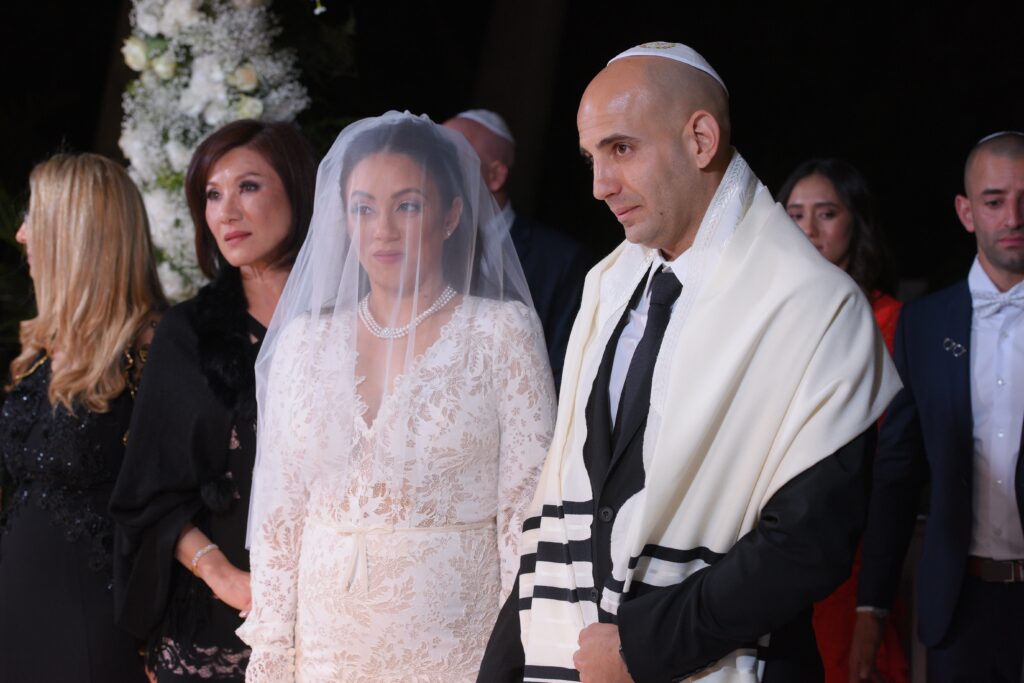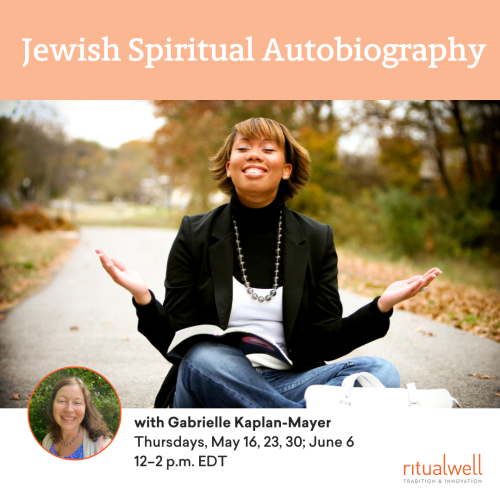This document functions as the T’nai b’kiddushinThe first part of the traditional wedding service in which the groom acquires the bride by giving her a small token, usually a ring, and declaring that she is betrothed to him according to Mosaic law. Today, most non-Orthodox couples have made this ceremony egalitarian, exchanging rings and empowering the bride to speak too. Some, disliking the property aspects of the ceremony, have dispensed with it altogether, substituting a brit shutafut – a partnership covenant. used in conjunction with a Conservative ketubahThe Jewish wedding contract. Traditionally, the ketubah protected the wife in marriage by spelling out the husband's obligations to her and guaranteeing her a financial settlement in case of divorce. Throughout the ages, ketubot (plural) have been illuminated and calligraphed, becoming significant as Jewish art. Today, all manner of egalitarian ketubot are written. Some dispense with the financial and legal aspects, focusing more on the emotional and spiritual sides of the relationship. Others maintain the rabbis' concern with the practical, but define mutual obligations for each spouse. that does not include a Lieberman Clause. The bride and groom agree to abide by the decision of a rabbinic court in the event of divorce, thus abrogating the situation of agunahTraditionally, only a Jewish man can initiate divorce proceedings. Hence an agunah is a woman whose husband has refused her a divorce. She is unable to remarry, though he is permitted to, and any future children she has would be considered mamzerim (a legal category of persons who may not marry except among themselves)., a “chained woman” whose husband refuses her a religious divorce.
This is to certify that on the ____day of the month of _________ in the year ____, corresponding to _____________ day of the month of _____,______, in _____________,__, _______________, the groom, and _____________, the bride, of their own free will and accord have entered into the following agreement with respect to their intended marriage.
- Should a dispute arise that is not resolved and we do not live together as husband and wife and a process for the dissolution of the marriage is initiated in the civil courts, we agree to appear before the Joint Bet DinRabbinic court consisting of three rabbis or learned members of the Jewish community. of the Rabbinical Assembly and the Jewish Theological Seminary of America, or such other Bet din as may be appropriate in the city or region of our domicile, and do hereby empower such Bet Din to decide any issues regarding the issuance of a get and effectuate that decision.
- The groom has furthermore made the following declaration to the bride:
“I will betroth and marry you, as we have agreed, according to the laws of MosesThe quintessential Jewish leader who spoke face to face with God, unlike any other prophet, and who freed the people from Egypt, led them through the desert for forty years, and received the Torah on Mt. Sinai. His Hebrew name is Moshe. and the people of IsraelLit. ''the one who struggles with God.'' Israel means many things. It is first used with reference to Jacob, whose name is changed to Israel (Genesis 32:29), the one who struggles with God. Jacob's children, the Jewish people, become B'nai Israel, the children of Israel. The name also refers to the land of Israel and the State of Israel., subject to the following conditions:
“If our marriage should be terminated by decree of the civil courts and if by the expiration of six months after such a decree, I give you a divorce (getA writ of divorce. Traditionally, only a man can grant his wife a get. Liberal Jews have amended this tradition, making divorce more egalitarian.) according to the laws of Moses and the people of Israel, then our betrothal (kiddushin) and our marriage (nissu’in) will have remained valid and binding;
“But, if our marriage shall have been terminated by decree of the civil courts and if by six months after such a decree I do not give you a divorce (get) according to the laws of Moses and the people of Israel, then our betrothal (kiddushin) and our marriage (nissu’in) will have been null and void.
The bride replied to the groom: “I consent to the conditions that you have made.”
Groom ______________________________________________________________
Bride_______________________________________________________________
We the undersigned duly constituted as a Bet Din have witnessed the oral statements and signatures of the bride and groom and indicate that they were made without compulsion and of their own free will.
Bet Din:
1) ______________________________________________________________________
2) ______________________________________________________________________
3) ______________________________________________________________________
Courtesy of the Rabbincal Assembly.













